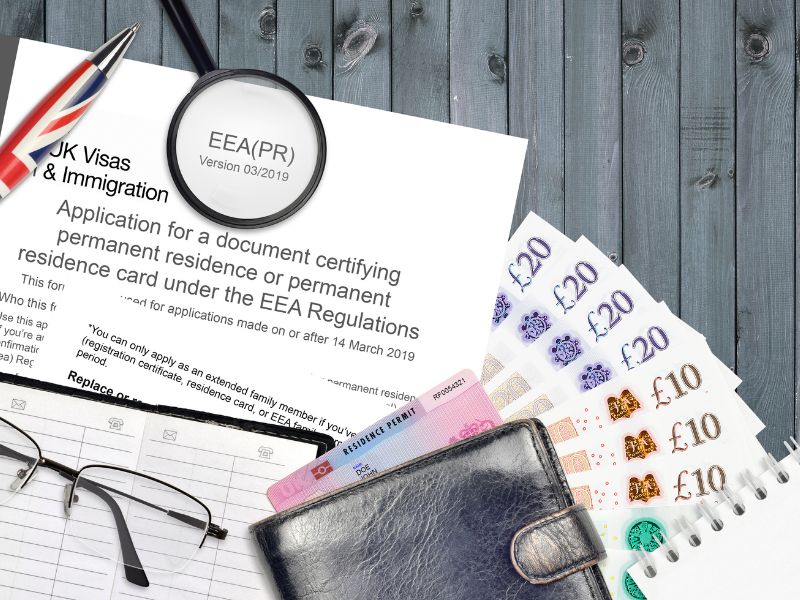Making Mortgage Decisions: Online Lenders vs. Traditional Banks
 The options for securing a mortgage have expanded beyond the brick-and-mortar banks to include online lenders. With this diversity comes a crucial decision for homebuyers: should you opt for the convenience of online lenders or stick with the familiarity of traditional banks? Let’s explore the pros and cons of both options to help you make an informed decision.
The options for securing a mortgage have expanded beyond the brick-and-mortar banks to include online lenders. With this diversity comes a crucial decision for homebuyers: should you opt for the convenience of online lenders or stick with the familiarity of traditional banks? Let’s explore the pros and cons of both options to help you make an informed decision.
Online Mortgage Lenders
Pros:
Convenience: One of the most significant advantages of online mortgage lenders is the convenience they offer. You can apply for a mortgage from the comfort of your home, without the need to visit a physical branch. This is especially beneficial for busy individuals who may not have the time to schedule meetings during traditional banking hours.
Competitive Rates: Online lenders often have lower overhead costs compared to traditional banks, allowing them to offer competitive interest rates and fees. By shopping around and comparing quotes from various online lenders, you may find a better deal than what traditional banks can offer.
Streamlined Application Process: Online mortgage applications typically involve less paperwork and can be completed faster than traditional methods. Many online lenders utilize digital platforms and automated systems, making the application process more efficient and straightforward.
Cons:
Limited Personal Interaction: While online lenders offer convenience, they may lack the personalized touch of traditional banks. Some homebuyers prefer face-to-face interactions with loan officers to address their questions and concerns. If you value personal relationships and guidance throughout the mortgage process, an online lender may not be the best fit for you.
Risk of Fraud: As with any online transaction, there is a risk of fraud when dealing with online mortgage lenders. It’s essential to research and verify the legitimacy of the lender before providing sensitive personal and financial information. Look for reputable lenders with strong security measures in place to protect your data.
Traditional Banks
Pros:
In-Person Support: One of the primary advantages of traditional banks is the availability of in-person support from loan officers and mortgage specialists. This can be reassuring for first-time homebuyers or individuals who prefer face-to-face interactions when navigating the mortgage process. Loan officers can provide personalized guidance and address any concerns you may have along the way.
Established Reputation: Traditional banks have a long history and established reputation in the financial industry. Many homebuyers feel more confident entrusting their mortgage to a well-known bank with a proven track record of stability and reliability.
Bundling Options: Some traditional banks offer incentives for customers who already have existing accounts, such as checking or savings accounts. These banks may offer discounts or preferential rates for mortgage applicants who bundle their services, providing potential cost savings in the long run.
Cons:
Potentially Higher Costs: Traditional banks often have higher overhead costs, which can translate to higher interest rates and fees for mortgage borrowers. While some borrowers may prioritize the familiarity and security of a traditional bank, others may be willing to sacrifice these benefits for a more affordable mortgage option.
Lengthy Application Process: Compared to online lenders, traditional banks may have a more time-consuming and paperwork-intensive application process. This can lead to delays in securing a mortgage, especially if you encounter any complications or need to provide additional documentation.
Limited Accessibility: Traditional banks typically operate within specific business hours and may have limited accessibility, especially for individuals who work during those hours. This can make it challenging to schedule appointments or speak with a loan officer if you have questions or concerns outside of traditional banking hours.
Both online mortgage lenders and traditional banks have their own set of pros and cons. The right choice for you will depend on your individual preferences, priorities, and financial situation. If you prioritize convenience, competitive rates, and a streamlined application process, an online lender may be the best option. On the other hand, if you value in-person support, an established reputation, and bundling options, a traditional bank may better suit your needs. Whichever option you choose, be sure to carefully research and compare multiple lenders to find the best mortgage deal for your homebuying journey.

 Buying a home is one of the most significant financial decisions most of us will ever make. It’s a journey filled with excitement, anticipation, and sometimes, a touch of anxiety. Among the many steps involved in this process, understanding mortgage underwriting is crucial. To demystify this complex process, let’s delve into the 5 C’s of mortgage underwriting.
Buying a home is one of the most significant financial decisions most of us will ever make. It’s a journey filled with excitement, anticipation, and sometimes, a touch of anxiety. Among the many steps involved in this process, understanding mortgage underwriting is crucial. To demystify this complex process, let’s delve into the 5 C’s of mortgage underwriting. Are you dreaming of owning your own home but facing obstacles in securing a mortgage? You’re not alone. Many aspiring homeowners encounter challenges due to factors like credit history, income, or debt-to-income ratio. There is a potential solution that could help you achieve your homeownership goals: a cosigner.
Are you dreaming of owning your own home but facing obstacles in securing a mortgage? You’re not alone. Many aspiring homeowners encounter challenges due to factors like credit history, income, or debt-to-income ratio. There is a potential solution that could help you achieve your homeownership goals: a cosigner. If you are thinking about buying a new home shortly, you may already be searching online to get a feel for the different types of homes available in the local area. You may have reviewed your budget, and you may have a fair idea about a sales price that is comfortable for you to afford.
If you are thinking about buying a new home shortly, you may already be searching online to get a feel for the different types of homes available in the local area. You may have reviewed your budget, and you may have a fair idea about a sales price that is comfortable for you to afford. Becoming a homeowner in a foreign land is an exciting yet intricate journey. For non-U.S. citizens, securing a mortgage in the United States involves understanding and meeting specific requirements. We will explore the essential prerequisites and considerations for non-U.S. citizens aspiring to own a piece of the American dream.
Becoming a homeowner in a foreign land is an exciting yet intricate journey. For non-U.S. citizens, securing a mortgage in the United States involves understanding and meeting specific requirements. We will explore the essential prerequisites and considerations for non-U.S. citizens aspiring to own a piece of the American dream.